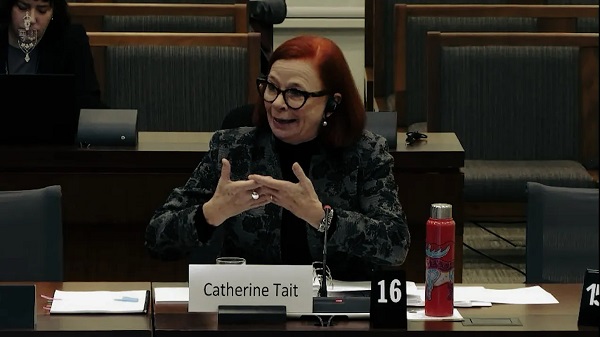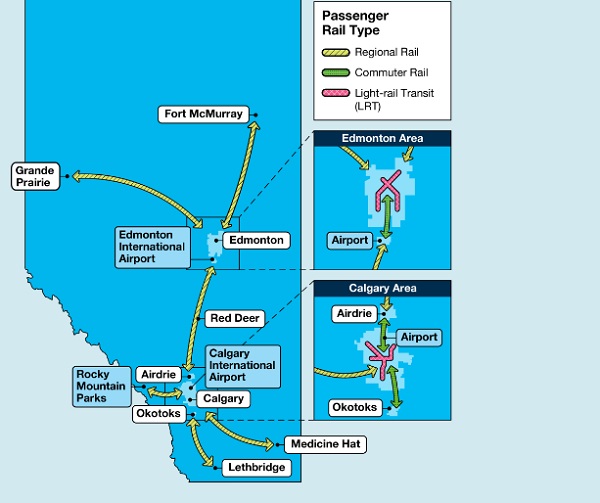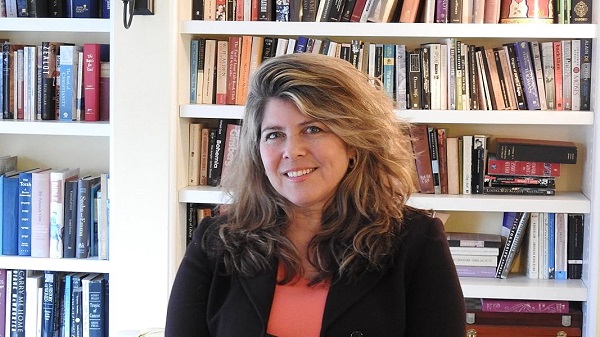Bruce Dowbiggin
A Decade Later, The Picture That Launched A Thousand Ships To The West

Nine years after September 2, 2015 the image is still searing. A little Syrian boy in shorts and a t-shirt washed up on a Turkish beach after his father’s boat capsized during a panicked escape from the civil war in their country. If you had a shred of humanity you probably resolved to do something about it. You vowed to help these desperate people.
So you unwittingly elected radicals and social engineers to the highest offices in the nations, trusting that their honeyed words about Aylan Kurdi’s sacrifice would not go to waste. What you didn’t know is your tears for a tiny lad would be re-purposed by radicals into an immigrant culture washing over Western culture. Is it correlation or causation? At this point it doesn’t matter.
There are many factors at play, but you could do worse than look at that dead boy as Patient One in the fever gripping the elites of Canada, the U.S. and the EU. While you can argue about previous conditions in Syria and the Middle East, the photo is Day One in the obliteration of Western traditional society.
It certainly contributed to the downfall of PM Stephen Harper, who was holding his own in the 2015 federal election until the Syrian war spit out that desperate family, the family that was taken down by the waves. Looking to be taken seriously in his battle for PM, Justin Trudeau used the Syrian crisis to flail Harper’s cold-hearted approach to the refugees.
For a PM whose warmth was never a strong point, Trudeau’s exploitation of the drowned little boy hit with the Liberal’s burgeoning base of white suburban women (and men who want to sleep with them). As we wrote in September of 2015: “If the campaign has had a moment where blood pressure crested, even briefly, it was in the visceral reaction to the drowned Syrian boy. The heartbreaking photo provoked an authentically Canadian dismay and a completely disproportionate response to the gravity of his desperate personal quest.
Even flinty Post columnist Christie Blatchford was advocating open borders to assuage first-world guilt over the Syrian mess.” Before you could say Joe Biden/ Kamala Harris, the doors to Europe and North America were indiscriminately opened to penniless refugees, to the worst criminals the third world produces, to the most extreme Marxist revolutionaries, to climate-change fanatics. The pillars of western thought, built over two thousand years, are disintegrating as those immigrants (legal or otherwise) clog the streets with the politics and religions they supposedly left behind.
When a newly-elected Donald Trump sought in 2017 to limit immigration from nations with radical politics he was met with a banshee wail from MSNBC, CNN, the Washington Post and New York Times. Still smarting from Trump’s election they branded him a racist, a stain that follows him till today.

Making it doubly exasperating was the fact that these interlopers were not what the public had voted for. A succession of progressive politicians such as Barack Obama, Hillary Clinton, Trudeau and Jagmeet Singh repurposed a geopolitical tragedy, diluting the traditional population with immigrants who neither care for nor respect their adopted homes. (Hands up anyone who’s heard these demonstrators with a good word about Canada or the U.S.)
The impact of this seemingly virtuous immigration touches every corner of Western societies. Having open borders is misconstrued as being open minded. It was argued again in the U.S. vice presidential debate on Oct. 1 with Democrat Tim Walz and his CBS News allies bizarrely insisting that the newcomers haven’t made housing more expensive. GOP nominee J.D. Vance countered that the surge of buyers was a supply/ demand driver for home-price inflation. The fact this was even debatable underscores how deep the rot has become.
From housing to education to healthcare, the ballooning of Canada’s population from 35 million to 40 million ignores the reality that makes citizens feel like strangers in their own land. While the moribund Liberal/ NDP axis and their paid media still embrace the flood of illegal aliens, polls show that most Canadians agree with the CPC’s stand that the saturation point was surpassed a long time ago.
The impact was similar in Europe where the attempts to staunch the flow of refugees looking for a toehold in the generous EU turned into a raging flood. Anyone asking to slow down the process was accused of wanting more Aylan Kurdis. Landing on all manner of craft in southern Europe the refugees made their way north to the embrace of health benefits and income guarantees. By the end of the decade all the major cities in the EU were penetrated by ghettos of aliens seeking to recreate their previous Damascus home in Stockholm or Paris or Brussels.
The clash of cultures produced horrific results that those who’d invited the strangers into their homes were reluctant to admit. Stories of grooming white girls in Bradford, England, or attacking outsiders who wandered into Malmo, Sweden, were dismissed and, now, punished by new anti-hate legislation. Those who cared in 2015 are now finally realizing the impact of using Aylun Kurdi to satisfy their liberal guilt has been a disaster for their culture.
It is said that a week is a long time in politics. In this case a decade has been more than enough to bring Western Civilization to its knees.
Bruce Dowbiggin @dowbboy is the editor of Not The Public Broadcaster A two-time winner of the Gemini Award as Canada’s top television sports broadcaster, he’s a regular contributor to Sirius XM Canada Talks Ch. 167. His new book Deal With It: The Trades That Stunned The NHL And Changed hockey is now available on Amazon. Inexact Science: The Six Most Compelling Draft Years In NHL History, his previous book with his son Evan, was voted the seventh-best professional hockey book of all time by bookauthority.org . His 2004 book Money Players was voted sixth best on the same list, and is available via brucedowbigginbooks.ca.
Bruce Dowbiggin
Mamas, Don’t Let Your Babies Grow Up To Be Running Backs (Pt.2)
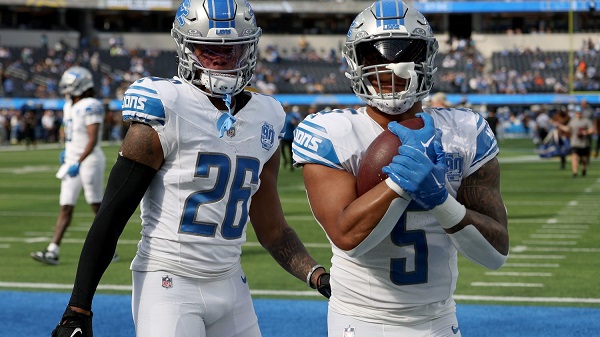
We were watching the NFL on U.S. Thanksgiving Day with a posse of passionate Detroit Lions fans. In between their efforts to convince us to return as Lions fans after our nasty divorce with the team a few years ago, they excitedly talked about the team’s dynamic running backs David Montgomery and Jahmyr Gibbs.
Montgomery is Thunder and Gibbs is Lightning as the Lions head toward what might be their first Super Bowl appearance. Ever. As in, not a sniff of a title since they played the NFL championship game in 1957. But we digress. Montgomery, who has 11 TDs, is signed at a comfortable $5.056 M per year on a two-year contract. Gibbs, who has 10 TDs, is on the second year of his rookie deal that averages $4,461,283 a year.
Naturally, the Lions fans want Gibbs signed to a deal so they don’t lose him when he’s a free agent in 2027. But here’s where it gets tricky. In a previous NFL, when RBs were prime attractions, Gibbs would be among the NFL’s top money earners when he’s free to take offers. It doesn’t work that way anymore. The days of Walter Payton and Barry Sanders are over. Even with a slight resurgence in the NFL’s running game in 2024 RBs are still values as penny stocks.
Last July we looked at the reality of two star backs coming off rookie deals. “Las Vegas Raiders RB Josh Jacobs looked at the reality of being a running back in today’s NFL and caught the 6 AM flight out of Vegas. New York Giants RB Saquon Barkley looked at the reality of being a running back in today’s NFL and signed a one-year deal for $10.1 million. The incentives in the deal will be very challenging for Barkley. He said he had an “epiphany”. Or maybe a chat with his banker.

Same situation. Different response. As players coming off their rookie-capped contracts both Jacobs and Barkley found a market that valued running backs just above place kickers on the economic totem pole. Prone to injury and undercut by a steady stream of star running backs emerging from the Draft, veteran running backs across the league now found themselves squeezed on short-term deals for what constitutes pocket change for quarterbacks.”
In the offseason Barkley ditched the Giants for a three-year deal with the Eagles that earns him $13 M with a lowly $3.8 M cap hit. The man who could well be the NFL MVP is 13th on the Eagles salary cap, squeezed between Milton Williams and kicker Jake Elliott. He’s hoping this breakthrough season will recoup the money the Giants declined to pay him coming off is rookie deal.
Jacobs, meanwhile, has become the Green Bay Packers MVOP playing for $ 12 M in the first year of a four-season contract. But the two of them are small fry next to QB Patrick Mahomes’ $450 M contract, Joe Burrows’ and Trevor Lawrence’s $275 M deal or Deshaun Watson’s guaranteed $230 M to stink it up in Cleveland. To say nothing of the $140.6 M going to Tampa Bay’s LT Tristan Wirfs or the $140 M deals for WRs Davante Adams of TB and Minnesota’s Justin Jefferson. How come?
It is, of course, all a matter of sports caponomics . (For more on the evolution of salary caps in sports leagues read our book Cap In Hand: How Salary Caps are Killing Pro Sports and Why the Free Market Could Save Them. brucedowbigginbooks.ca)

Scarcity drives value, and the most scarce commodity is not excellent running backs. It’s excellent quarterbacks. Scarcity is why left offensive tackles make more than guards and centres. It’s why cornerbacks make more than middle linebackers. It’s why these positions are drafted in the first round while running backs and others slide to the later rounds. Gibbs’ first-round selection by Detroit was widely seen as too early for the position and, thus, a cap mistake.
As we remarked in Cap In Hand, the NFL knew it was a two-tier league back in 1987 when it busted a strike by the NFL Players Association for free agency. “There had been no new CBA since the 1982 agreement expired in 1987. To drain the NFLPA’s bank account, the NFL had previously created a “Quarterback Club” marketing arm separate from other players. While the league’s top QBs and select others were handsomely compensated with bonuses and percentages of sales, the move denied significant marketing revenues to the rest of the players and the union.”
End of strike. You’d think that with agents advising RBs and the market establishing value running backs would put pride aside. Nah. Running back Le’Veon Bell described the process when he turned down guaranteed wealth in Pittsburgh in 2022. “My franchise tag was $14.5M, and I walked away from it,” Bell said on the AP Pro Football Podcast. “It’s a respect thing. You told me you were going to do this for me but you didn’t… I could’ve just ignored it, went inside the locker room and had been playing.
“But that wouldn’t have made me happy, and I’m sure inside the locker room, everybody would’ve felt it, and, as a team, we wouldn’t have been good. I feel that’s the same with Saquon. He’s trying to be the best he can, but obviously deep down, he’s not happy, because he wanted to be compensated. He still wants his teammates to be good, so he showed up.”
Bell’s own gamble didn’t work out, as he’s drifted from the Jets to the Ravens to the Buccaneers. Now he’s training to be a boxer. From leading man to bit player. He’ll never make up the money he’s lost by choosing to be a glamourous-but-unappreciated RB. But ask yourself, at what other position in what other league would the three best players at a single position be allowed to switch team from 2023-24?.
That’s what happened last winter when top candidates for 2024 OPOY— Barkley, Jacobs and Derrick Henry— all departed their former teams for slightly better paydays on the Eagles, Packers and Ravens. Doesn’t seem to make sense. Till you see 49ers star RB Christian McCaffrey injured again Sunday night in Buffalo with a PCL tear. Then you understand why teams are unwilling to take a longterm gamble on the man carrying the rock.
And why we’ll stay fans of the Buffalo Bills and their QB $258 Million QB Josh Allen for the time being.
Bruce Dowbiggin @dowbboy is the editor of Not The Public Broadcaster A two-time winner of the Gemini Award as Canada’s top television sports broadcaster, he’s a regular contributor to Sirius XM Canada Talks Ch. 167. His new book Deal With It: The Trades That Stunned The NHL And Changed hockey is now available on Amazon. Inexact Science: The Six Most Compelling Draft Years In NHL History, his previous book with his son Evan, was voted the seventh-best professional hockey book of all time by bookauthority.org . His 2004 book Money Players was voted sixth best on the same list, and is available via brucedowbigginbooks.ca.
Bruce Dowbiggin
Climate & Covid: How The Certainty of Elites Destroyed A Decade
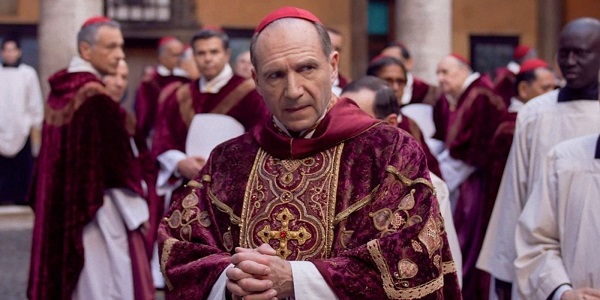
It probably wasn’t meant as an epitaph for the years since 2008, but a speech from the recent movie Conclave might serve all the same. In the film, a British Cardinal Lawrence (Ralph Fiennes) must be deacon to the Conclave electing a new pope. He is hesitant to accept the responsibility in times of intolerance. His homily explains why.
“Certainty is the great enemy of unity. Certainty is the deadly enemy of tolerance. .. If there were only certainty and no doubt there would be no mystery. And therefore no need for faith. Let us pray God will find us a pope who doubts.” (Spoiler alerts forbid further plot developments.)
Cardinal Lawrence might well have been describing the deadening effects of certainty since the election of Barack Obama (2008) and Justin Trudeau (2015). Under the guise of enlightenment Obama and then Trudeau have employed certainty as a battering ram. Those who expressed doubt were eliminated. Those bending a knee were spared— for now. Those at the top got great Taylor Swift tickets.
While artfully claiming disinformation/ misinformation as dire threats to humanity they used censorship to eliminate opposing views to their radical progressive agendas. The two most prominent of those agendas were, of course, the toxic twins of Climate and Covid.
While the global warming… oops, climate-change hustle had been around for some time it was only under the auspices of Obama and then Trudeau that it gained its ability to punish dissent. Who can forget Obama’s sneering admonition to doubters that 97 percent of scientists were onside with Al Gore and Greta Thunberg because The Science Was Settled? This was certainty on steroids.

In short order, newspapers banned letters to the editor disputing the manipulative programs of the UN and the IPCC (among the many drawing hundreds of millions in public funds). Opposing climate voices disappeared from CBC television panels. To dispute controversial claims was an invitation to disastrous law fare, as Canadian journalist Mark Steyn discovered. Our piece The Right To Criticize Climate Change Has Cost Mark Steyn Almost Everything highlights the decade-plus ordeal he suffered in D.C. courts for pointing out the fraudulence of Michael Mann’s hockey-stick oeuvre.
All for disputing the certainty of the science behind a global scheme to move billions from the first world to developing nations. (Which is then reportedly laundered back to the U.S.) Were Steyn’s case an exception we might grant his oppressors leeway. But the certainty principal of Obama and Trudeau on climate cost thousands of scientists their livelihoods, bankrupted others and blackened their life’s work. To no effect on climate itself.
In Canada, Trudeau named a convicted criminal and ruthless zealot as his climate minister. Steven Guilbeault took certainty to its illogical end, dragging the faculty lounge of idiots in Trudeau’s cabinet along with him. Again, career scientists and researchers were crushed by his onslaught of a useless carbon tax, EV mandates and ridiculous bans on workable solutions such as nuclear. Dispute was fruitless. They were that certain of their holiness.

But climate certainty was simply the appetizer for the banquet of Covid. Here both Trudeau and Obama (and his successors in the the U.S. health industry) wielded certainty into a script that not even Hollywood would have considered plausible in 2000.
Most now recall the Rod Serling scenario of an engineered Chinese virus somehow wiping out civilization. This plot was employed to suspend everyday activity and lock the population in their homes across much of the West and Asia. (Surprisingly Africa declined the invitation to insanity and survived nicely, thank you.)
Lock downs, masks, distancing, surface wiping, police raids, government bans— all were the poisoned fruit employed by bureaucrats and fanatics in service of their certainty. Everyone has their pained memory of overreach, from arresting surfers on the beach to locking arriving Canadian travellers into hotels to seniors dying alone in quarantined wards.
Citing the worthlessness of masks was always accompanied with the admonition that defying the new normal was a fatal threat to someone’s grandmother. It is a truism that people cannot remember the pain of dental extraction or childbirth. But the dystopian effects of Covid are likely to be carried to the grave by young people isolated from schools and grieving citizens denied a final farewell to parents.
While authorities sought to keep their grip, certainty finally began to erode. It was revealed that six-foot distancing was an invented standard, masks were useless in stopping the spread of the virus and the avalanche of positive tests were largely false positives and unlikely to make anyone sick. Soon Covid humour became accepted. Compliance was mocked. Citizens chucked the mask and re-started life.
Those certain in their power recoiled at the insubordination. Armin Rosen noted their stunned disbelief in Tablet, “Perhaps the higher levels of the American media complex, masquerading in the clothing of a different century, should embrace their essentially patrician urges and accept their permanent bafflement at the inscrutable, inexplicable passions of the American polity, thus exempting themselves from any deep concern about what the rest of us are up to.”
Donald Trump’s call to reject those who’d prospered in Covid found willing ears in the United States. His resounding sweep in the 2024 elections— every state in the union moved rightward in voting— was the final rebuke to those who preached certainty. The same people who sloughed off not one, but two assassination attempts on a presidential candidate as mere distractions.

It remains to be seen whether docile Canadians, always deferring to authority first, will shake off the certainty crowd in the next federal election. The Liberals are still hoping they can fool them with the Pierre Poilievre-as-Trump-as-Hitler narrative, a scare tactic that failed miserably down south. (One recent poll shows the Conservatives winning 240 seats, the Liberals with 19.)
Cardinal Lawrence’s appeal in Conclave to a higher purpose than certainty should be a stake in the heart of those who’ve oppressed their families and neighbours to no perceptible gain. The Trump comeback signals an opportunity with RFK Jr. and Elon Musk for a revival of healthy debate and skepticism. Whether it holds and prospers is still uncertain. But we have learned that uncertainty is a thing to be wished for.
Bruce Dowbiggin @dowbboy is the editor of Not The Public Broadcaster A two-time winner of the Gemini Award as Canada’s top television sports broadcaster, he’s a regular contributor to Sirius XM Canada Talks Ch. 167. His new book Deal With It: The Trades That Stunned The NHL And Changed hockey is now available on Amazon. Inexact Science: The Six Most Compelling Draft Years In NHL History, his previous book with his son Evan, was voted the seventh-best professional hockey book of all time by bookauthority.org . His 2004 book Money Players was voted sixth best on the same list, and is available via brucedowbigginbooks.ca.
-
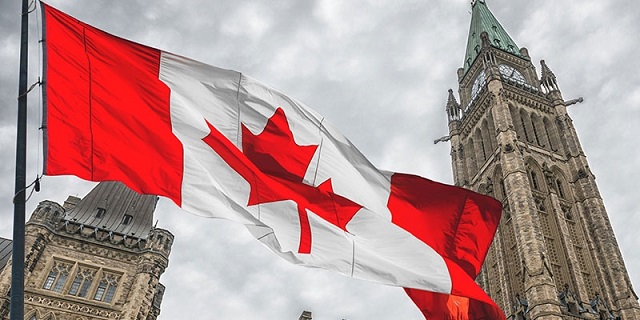
 David Clinton2 days ago
David Clinton2 days agoWhat Happens When Ministries Go Rogue?
-
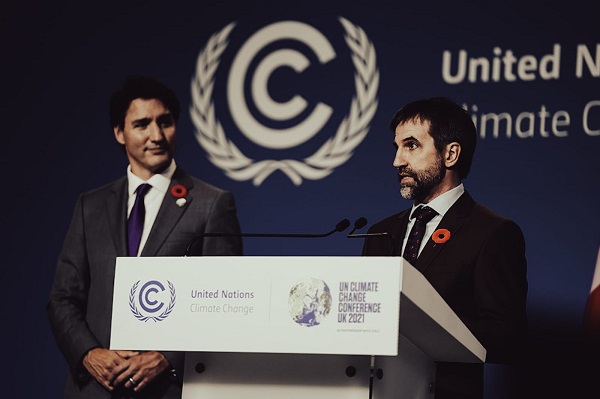
 Automotive2 days ago
Automotive2 days agoNorthvolt bankruptcy ominous sign for politicians’ EV gamble
-
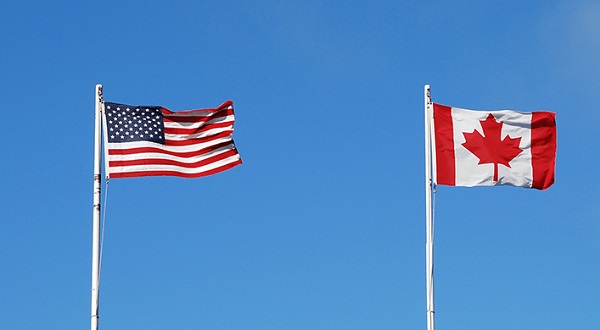
 Crime2 days ago
Crime2 days agoWhat did Canada Ever Do to Draw Trump Tariff on Immigration, You Ask? Plenty
-
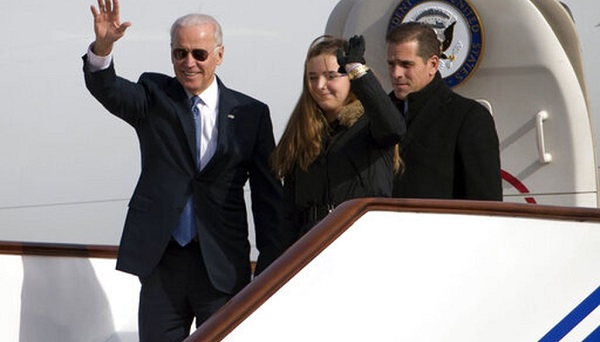
 Daily Caller2 days ago
Daily Caller2 days agoCNN’s Scott Jennings Says History Will Remember Biden As ‘Complete And Total Disgrace’ Over Hunter Pardoning
-

 Automotive2 days ago
Automotive2 days agoElectric-vehicle sales show modest spark
-
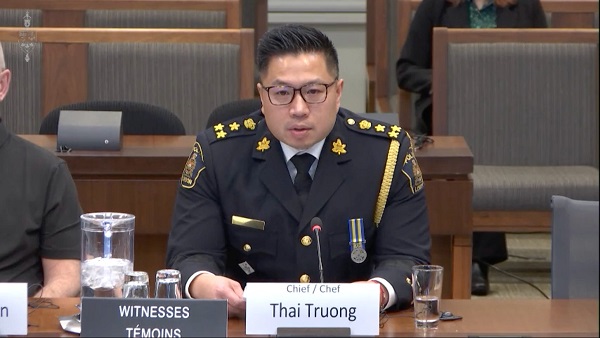
 Addictions2 days ago
Addictions2 days agoLondon Police Chief warns parliament about “safer supply” diversion
-

 Health2 days ago
Health2 days agoFauci admitted to RFK Jr. that none of 72 mandatory vaccines for children has ever been safety tested
-
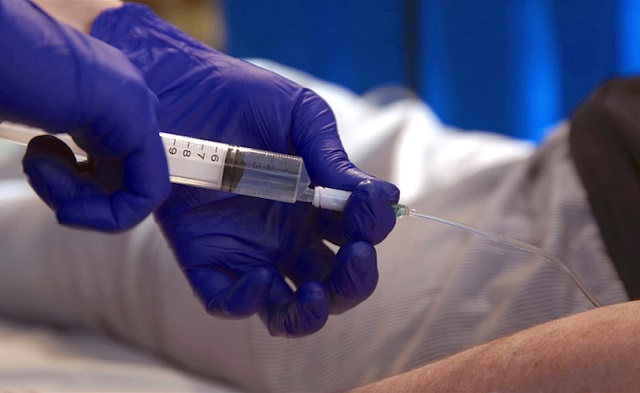
 Daily Caller2 days ago
Daily Caller2 days ago‘Dark Day’: Another Western Country Backs Doctor-Assisted Suicide, Opens Door To ‘Murder Of Old And Sick’


